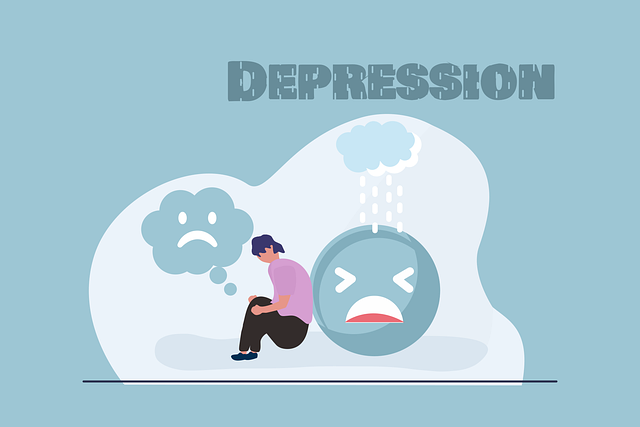Mental health professionals in Englewood emphasize risk assessment as a cornerstone of patient safety and treatment planning, especially for ADD-ADHD evaluations. This process involves identifying vulnerabilities, managing impulsivity through conflict resolution training, and cultivating compassion for open communication. In therapy sessions, robust safety strategies are implemented to create secure environments, empowering clients with self-regulating tools and evidence-based practices. Continuous monitoring, dynamic assessment, building resilience, cultural sensitivity, and community outreach programs ensure comprehensive care tailored to individual needs, particularly in addressing Englewood ADD-ADHD evaluations.
Mental health professionals play a crucial role in safeguarding client well-being, especially when dealing with complex conditions like Attention-Deficit/Hyperactivity Disorder (ADHD). This article guides practitioners through essential risk assessment practices tailored for ADHD evaluations and therapy sessions. We explore unique considerations during Englewood ADD-ADHD Evaluations, emphasizing the implementation of effective safety strategies and continuous monitoring. By mastering these skills, professionals can ensure a supportive environment, foster positive outcomes, and mitigate potential risks.
- Understanding Risk Assessment in Mental Health Practice
- Unique Considerations for ADD-ADHD Evaluations
- Implementing Effective Safety Strategies in Therapy Sessions
- Continuous Monitoring and Support for Client Well-being
Understanding Risk Assessment in Mental Health Practice

Mental health professionals frequently encounter individuals with complex needs, and a thorough understanding of risk assessment is paramount to ensuring patient safety and effective treatment. Risk assessment in mental health practice involves systematically evaluating and interpreting potential hazards or vulnerabilities that may impact an individual’s well-being. It’s not just about identifying dangers but also understanding the underlying factors contributing to them. This comprehensive approach allows professionals to tailor interventions, such as Englewood ADD-ADHD evaluations and therapy, to meet the unique requirements of each client.
By integrating risk assessment into their practice, mental health experts can proactively manage risks, develop appropriate safety plans, and provide effective trauma support services. Moreover, it boosts confidence among both practitioners and clients by fostering a culture of proactive care. Public awareness campaigns play a crucial role in promoting understanding of these processes, ensuring that individuals seeking help recognize the importance of risk assessment in their treatment journey.
Unique Considerations for ADD-ADHD Evaluations

When conducting risk assessments for mental health professionals specializing in Englewood ADD-ADHD Evaluations and Therapy, several unique considerations come into play. These professionals often work with individuals who may present complex challenges related to attention-deficit/hyperactivity disorder (ADHD). As such, a comprehensive assessment process is vital to ensure effective therapy. One key aspect is recognizing the potential for impulsivity, which can impact both the client and the therapist. This requires specialized training in conflict resolution techniques to handle any unexpected behaviors or emotional outbursts that may arise during sessions.
Additionally, mental wellness journaling exercises can be a valuable tool for both therapists and clients. This practice allows individuals with ADHD to externalize their thoughts and emotions, fostering self-awareness and providing data for professionals to track progress over time. Compassion cultivation practices are also essential, as they help create a safe and supportive environment, crucial for building trust and encouraging open communication—a fundamental aspect of successful therapy for ADD-ADHD clients.
Implementing Effective Safety Strategies in Therapy Sessions

In therapy sessions, mental health professionals must implement robust safety strategies to foster a secure environment for clients, especially those with conditions like ADD-ADHD. Englewood ADD-ADHD evaluations therapy often involves managing intense emotions and impulsive behaviors, requiring therapists to be well-equipped with techniques that promote client safety without stifling their expression. Effective strategies include establishing clear boundaries, teaching coping mechanisms tailored to individual needs, and ensuring consistent support throughout the therapeutic journey.
Professionals should prioritize inner strength development by empowering clients with self-regulating tools. This involves not just managing symptoms but also enhancing overall mental resilience. In line with Mental Health Policy Analysis and Advocacy, therapists can contribute to systemic change by advocating for evidence-based practices that holistically address mood management. By integrating these strategies, therapy sessions become more than just episodic interventions; they become spaces where clients gain lifelong skills to navigate their mental health journeys safely and effectively.
Continuous Monitoring and Support for Client Well-being

Mental health professionals play a pivotal role in maintaining and enhancing client well-being, which requires continuous monitoring and support. This involves regular check-ins, progress assessments, and proactive intervention strategies tailored to individual needs. By integrating dynamic assessment techniques, therapists can swiftly identify emerging risks or challenges, such as those related to Englewood ADD-ADHD evaluations, and implement appropriate therapy interventions.
Building resilience is a key aspect of this process, empowering clients to navigate life’s complexities with greater adaptability. Moreover, cultural sensitivity in mental healthcare practice ensures that support is tailored to diverse backgrounds and experiences, fostering trust and improving outcomes. Community outreach program implementation also plays a crucial role by extending services into various settings, enhancing accessibility and continuity of care for at-risk populations.
Englewood mental health professionals can enhance their practice by adopting a comprehensive risk assessment approach. Understanding the nuances of risk assessment, as discussed in this article, including unique considerations for ADD/ADHD evaluations and implementing safety strategies tailored to therapy sessions, is vital. Continuous monitoring and support for client well-being not only protect patients but also foster effective treatment outcomes. By integrating these practices, Englewood therapists can ensure a safer and more supportive environment for all clients, particularly those with ADD/ADHD.









